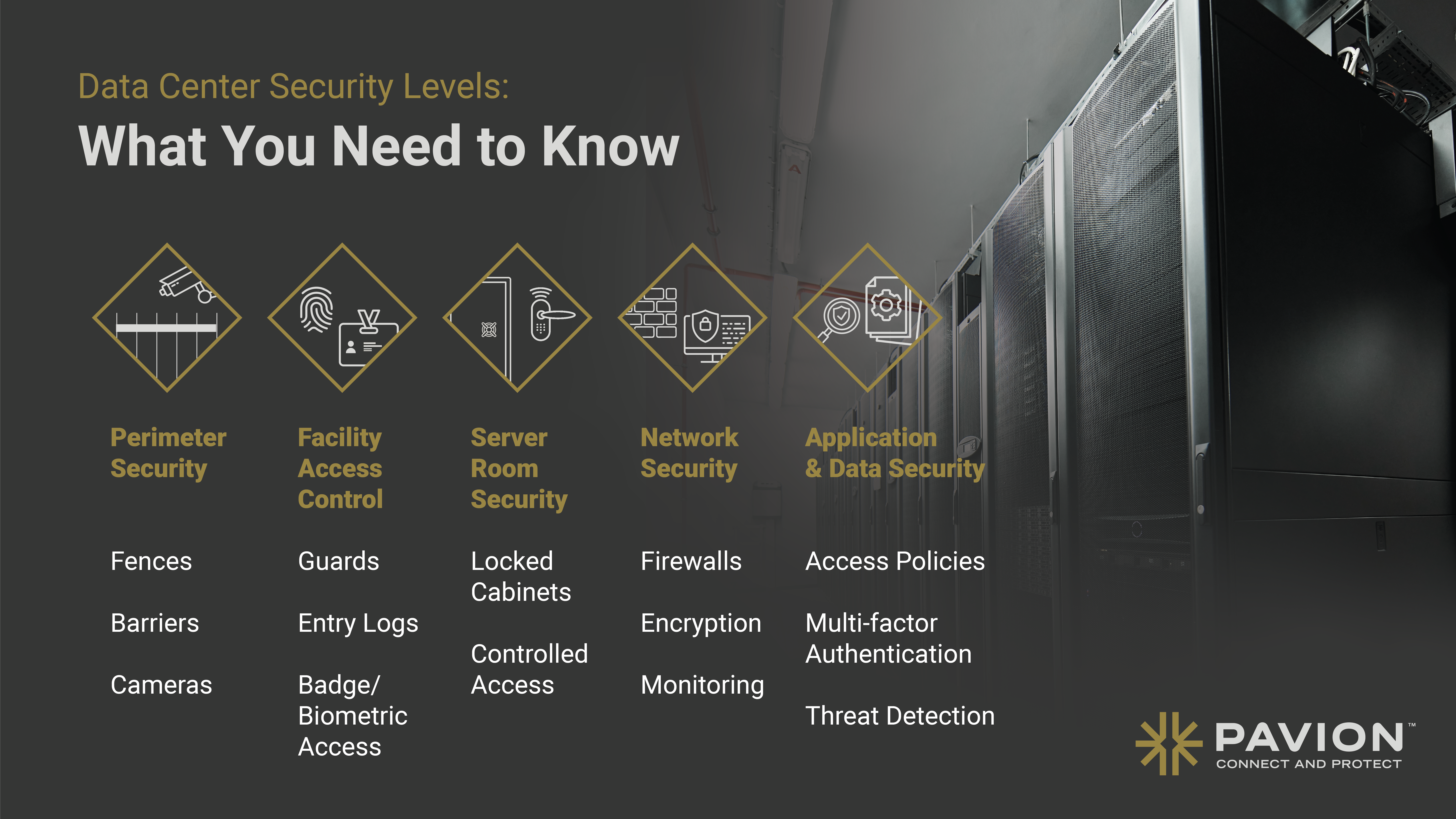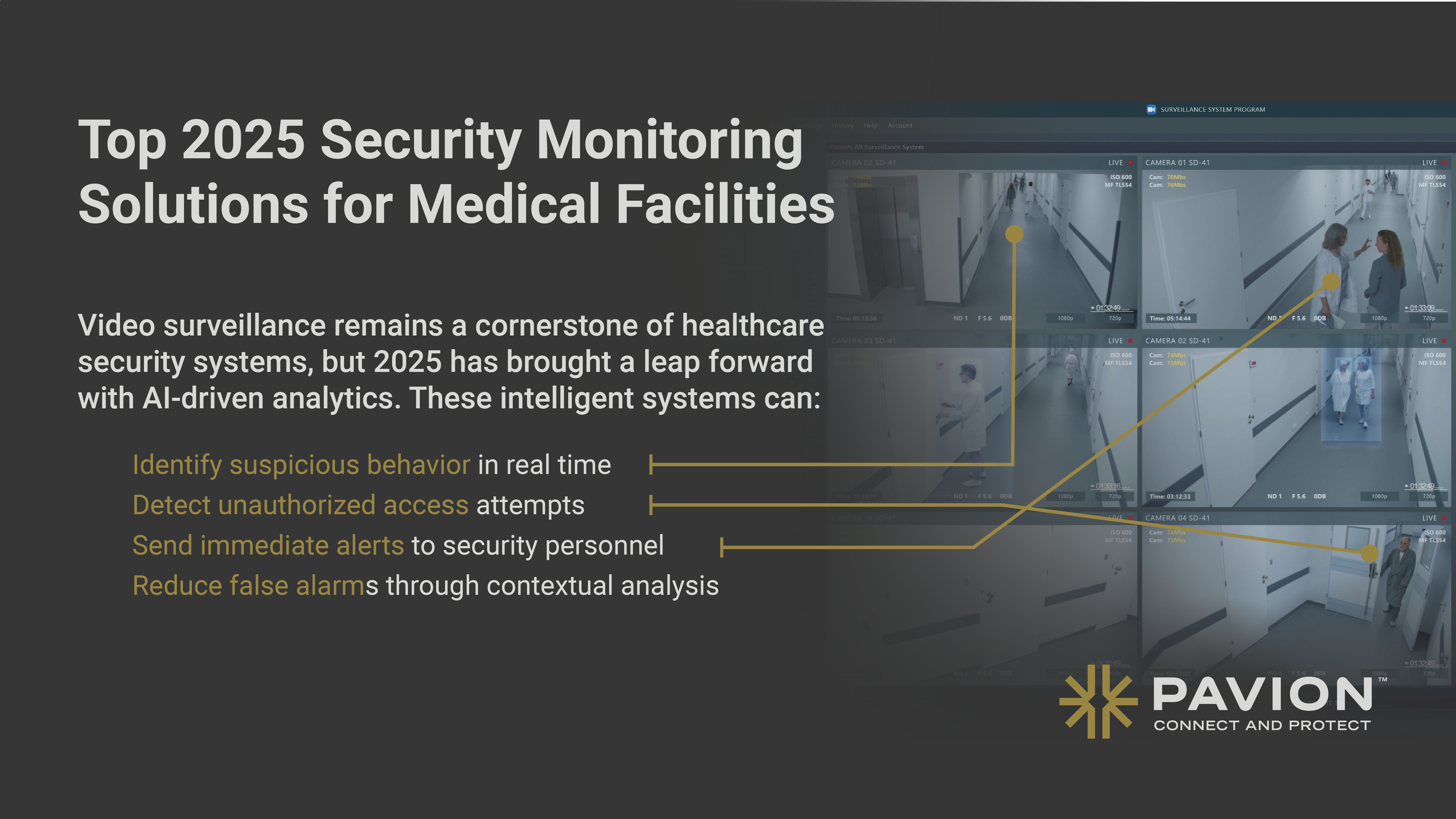
A Guide to Grocery Store Security Systems
In today’s rapidly evolving retail landscape, grocery store security systems have become an essential component of store operations. The safety and well-being of employees and customers are of paramount importance, and investing in effective security measures is crucial in maintaining a secure environment. This guide aims to provide a comprehensive overview of grocery store security systems, their importance, different types available, and key features to consider when choosing a system. Additionally, it will offer valuable insights and tips on implementing these systems in your grocery store.
Understanding the Importance of Grocery Store Security
Grocery stores face unique security challenges due to the open layout, large number of customers, and the variety of products on offer. Ensuring the safety of both people and inventory is essential for running a successful business and fostering customer trust. A robust security system serves as a deterrent to potential criminals and assists in the early detection and response to security incidents, protecting your assets and reducing losses.
When it comes to grocery store security, there are several key factors to consider. One of the primary concerns is the open layout of most grocery stores. Unlike other retail establishments that may have more confined spaces, grocery stores typically have wide aisles and multiple entrances and exits. While this open layout allows for easy access and movement for customers, it also presents a challenge in terms of monitoring and controlling the store’s security. Therefore, implementing a comprehensive security system that covers all areas of the store becomes crucial.
Another significant aspect to consider is the large number of customers that grocery stores attract on a daily basis. With a constant flow of people coming in and out, it becomes essential to have security measures in place to ensure the safety of both customers and employees. This can include surveillance cameras strategically placed throughout the store, trained security personnel patrolling the premises, and access control systems to monitor and regulate entry and exit points.
The Role of Security in Retail
In the retail industry, security plays a vital role in safeguarding the premises, products, and customers’ personal information. It not only helps prevent theft and vandalism but also establishes a sense of trust and confidence among shoppers. Effective security measures can contribute to a positive shopping experience, leading to customer loyalty and repeat business.
When customers enter a grocery store, they expect a safe and secure environment where they can shop without worrying about potential threats. By implementing a robust security system, grocery store owners can create a sense of trust and confidence among their customers. This, in turn, can lead to increased customer loyalty and repeat business, as shoppers feel comfortable and protected while shopping for their daily needs.
Furthermore, security in retail goes beyond preventing theft and vandalism. It also involves protecting customers’ personal information, especially in an age where data breaches and identity theft are prevalent. Grocery stores often collect personal information from customers, such as credit card details and loyalty program data. Implementing security measures to safeguard this information is not only a legal requirement but also essential for maintaining customer trust and protecting their privacy.
Risks and Threats in the Grocery Business
Grocery stores face a range of risks and threats that can impact their operations. Shoplifting, employee theft, organized retail crime, and workplace violence are some of the common challenges faced by retailers. Additionally, issues such as fire hazards, accidents, and ensuring compliance with health and safety regulations need to be addressed. Implementing a comprehensive security system can mitigate these risks and enable proactive management of potential threats.
Shoplifting is a significant concern for grocery stores, as it can lead to substantial financial losses. With numerous products on offer and a constant flow of customers, it becomes challenging to monitor every aisle and prevent theft. However, by implementing surveillance cameras, training employees to be vigilant, and having visible security personnel, grocery store owners can deter potential shoplifters and minimize losses.
Employee theft is another risk that grocery stores need to address. While it may be disheartening to think that employees can engage in dishonest practices, it is a reality that businesses must face. Implementing security measures such as access control systems, inventory tracking systems, and regular employee training can help prevent and detect employee theft.
Organized retail crime is a growing concern for grocery stores. These criminal networks often target multiple stores, stealing large quantities of high-value products for resale. By collaborating with law enforcement agencies, implementing advanced surveillance systems, and sharing information with other retailers, grocery stores can work towards preventing and combating organized retail crime.
Workplace violence is a risk that cannot be ignored. Grocery store employees interact with a diverse range of customers, and unfortunately, incidents of violence can occur. Implementing security measures such as panic buttons, training employees on conflict resolution, and having security personnel on-site can help mitigate the risk of workplace violence and ensure the safety of both employees and customers.
Lastly, grocery stores need to address fire hazards, accidents, and ensure compliance with health and safety regulations. Installing fire detection and suppression systems, conducting regular safety inspections, and providing proper training to employees can help prevent and respond to emergencies effectively. Additionally, ensuring compliance with health and safety regulations not only protects employees and customers but also helps maintain the store’s reputation and avoid legal consequences.
Types of Grocery Store Security Systems
There are various types of security systems available for grocery stores, each designed to address specific security needs. Understanding these different systems can help you make an informed decision and choose the solution that best suits your store’s requirements.
Surveillance Cameras and CCTV Systems
Surveillance cameras and Closed-Circuit Television (CCTV) systems are the backbone of grocery store security. They provide around-the-clock monitoring and recording of activities, helping deter criminal behavior, identify suspects, and provide evidence for investigations. High-quality cameras with advanced features can capture clear images, even in low light conditions, and may include functionalities such as facial recognition and license plate recognition.
Alarm Systems for Retail Stores
Alarm systems form an integral part of grocery store security, alerting store personnel and authorities to potential security breaches. These systems consist of intruder detection devices, such as motion sensors, door/window contacts, and glass break sensors. When triggered, alarms activate audible and visual signals, notifying individuals on-site and triggering a response from security personnel or law enforcement.
Anti-Shoplifting Devices
Shoplifting is a serious concern for grocery stores, leading to significant financial losses if left unchecked. Anti-shoplifting devices, such as electronic article surveillance (EAS) systems and security tags, can help prevent theft by detecting unauthorized removal of items from the store. These devices trigger alarms at exit points if tags are not deactivated or removed during the purchase process, deterring potential shoplifters.
Key Features to Look for in a Security System
Choosing the right security system for your grocery store requires careful consideration of various factors. Here are some key features to look for:
High-Resolution Video
A security system with high-resolution video capabilities ensures clear and detailed footage, improving the chances of identifying perpetrators and investigating incidents effectively. Look for systems that offer HD or Ultra HD resolution, as well as 4K and advanced video compression technologies, and adjustable camera settings to capture clear images across different areas of your store.
Real-Time Monitoring Capabilities
Real-time monitoring enables you to keep a close eye on activities in your store, even when you’re not physically present. Look for systems that provide remote access through mobile applications or web interfaces. This feature allows you to view live video feeds, receive alerts, and manage your security system remotely, providing peace of mind and quick response options.
Integration with Other Systems
Integration capabilities are essential for a holistic security approach. Seek systems that can seamlessly integrate with other store management systems, such as point-of-sale (POS) systems and access control systems. This integration enables data sharing and enhances overall operational efficiency by providing a comprehensive view of store activities.
Implementing a Security System in Your Store
Implementing a security system in your grocery store involves several steps to ensure a smooth and effective integration. By following these guidelines, you can maximize the benefits of your chosen security solution.
Assessing Your Store’s Security Needs
Begin by conducting a thorough assessment of your store’s specific security needs. Identify areas of vulnerability, high-risk zones, and critical assets that require protection. Consider factors such as store layout, customer flow, high-value merchandise, and employee access areas, while keeping compliance with local regulations in mind.
Choosing the Right Security System
Based on your assessment, select a security system that meets your identified requirements. Consult with security experts or system integrators to understand different product options, review specifications, and discuss potential customization. Determine the optimal combination of surveillance cameras, alarm systems, and anti-shoplifting devices to achieve comprehensive coverage.
Installation and Maintenance Tips
Ensure that the installation of your security system is carried out by qualified professionals. Adequate placement of cameras, sensors, and other devices is crucial for optimal performance. Regular maintenance and system updates are also essential to ensure continued functionality. Establish a maintenance schedule and consider partnering with a reliable service provider for ongoing support.
By investing in a reliable and effective grocery store security system, you can protect your store, employees, and customers, reduce losses, and create a secure shopping environment. Take the time to evaluate your security needs, explore different options, and implement a system that integrates seamlessly into your store operations. The peace of mind and enhanced safety provided by a well-designed security system will positively impact your business and customer satisfaction.
Secure Your Grocery Store with Pavion
Ready to elevate the safety and security of your grocery store? Pavion is here to guide you every step of the way. With our extensive experience in providing top-tier fire, security, and integration solutions, we understand the unique challenges faced by the retail industry. Let us help you create a secure shopping environment that protects your assets and instills confidence in your customers. Get a Free System Assessment today and discover how our commitment to technology innovation and radical service can transform your store’s security approach.


